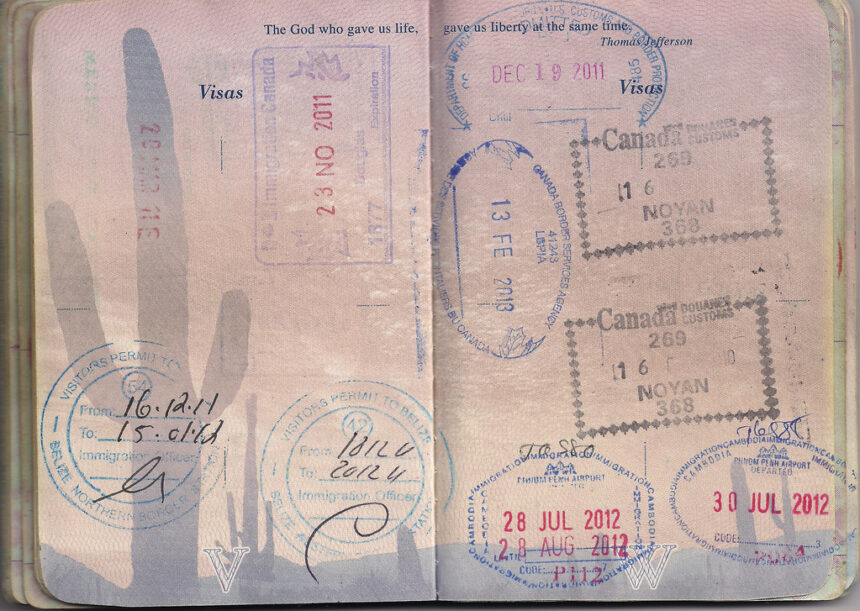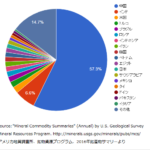If President-elect Donald Trump places heavy tariffs on Canada and Mexico, it may be difficult for the US to replace crude oil from these countries.
The US refineries may suffer heavy losses if they import oil from these two countries.
After reports that Trump would likely impose 25% on imports from Canada and Mexico, many have speculated.
It is interesting to note that the reports claim tariffs on crude imported from both countries will be applied.
Can’t replace shipments from Canada or Mexico
Experts say that the quality and quantity of oil imported from Canada, particularly, cannot be substituted.
The US Energy Information Administration reports that the US imported crude oil at a rate of 6.64 million barrels a day in the first 8 months of 2024.
The data revealed that Canada imported 4,08 million barrels of oil per day, and Mexico 478,000 barrels.
Carsten Fritsch is a commodity analyst with Commerzbank AG. He said that Canada was the US’s largest oil supplier by a wide margin, and Mexico came in second.
The President-elect Trump supports a greater production of oil in the US.
Fritsch stated that “it is difficult to replace this volume in the near future by increasing the domestic production of US shale, as it is a light oil with low sulphur, which is no substitute for heavy oil, rich in sulphur, from Canada or Mexico.”
The US oil production has already reached near-record levels. EIA data shows that oil production in the US was 13.513 millions barrels per week ending November 29.
Crude oil is the most important source of energy for both the US and other countries.
Refineries in the US have limited options
Rohit Rathod is a senior analyst for Vortexa and a leading oil market expert. He told ICD that tariffs don’t change the supply or demand of crude. They just restrict refiners’ choices.
Rathod stated that the refiners can backfill Canadian barrels either by exporting less US sweet crude which would make it more difficult for the refineries to operate optimally.
Importing crude oil from Latin America and long-haul barrels of Middle East is another expensive option.
Rathod is a noted note:
This is primarily due to the US Midwest refinery system, which is reliant on Canadian crude oil and lacks access to US Gulf Coast barrels for replacement.
The US produces heavy crude oil in the Gulf of Mexico where the production is stagnant.
Commerzbank says that it is impossible to import crude oil from another country.
Venezuela should not be considered as a possible supplier of heavy crude for obvious reasons. Fritsch added that the same is true for Russia and Iran.
The US could increase its oil imports.
Even at the peak of oil imports to Canada, this was only half what it is today.
Fritsch continued, “Also the issue of quality varies is also present here.”
The cost of refineries to consumers
According to a German bank, if Canadian and Mexican oil supplies cannot be substituted, US refineries must pay punitive duties or their suppliers will need to reduce prices significantly.
Fritsch said that it will likely come down to both.
Fuel prices would rise as a result.
Gasoline prices are expected to rise, especially in the Midwest of the US, where refineries rely heavily on Canadian imports.
Rathod stated that this would lead to higher gas prices and lower refinery margins, which could also lead to refineries closing.
US consumers have a high level of sensitivity when it comes to gasoline. The government is unlikely to impose a tariff of this magnitude on Canada or Mexico.
Rathod stated that it is unlikely to see tariffs on Canada or Mexico.
Commerzbank’s Fritsch echoed the same sentiment, saying that it was unlikely the US would implement such a tax “because otherwise Trump’s goal of providing cheap energy to the USA could be compromised”.
Rathod, meanwhile, believes that Mexico will not be affected as much if Trump does indeed implement these tariffs.
He said that Mexico could avoid the tariffs if it exported to Europeans and Asians, and get rid of some Middle East barrels entering these markets.
Canadian crude sellers will be forced to reduce their prices as their outlets are limited, and their biggest outlet is the US.
You can also consider the Trans Mountain Expansion Pipeline (TMX) but its capacity is limited by both vessel restrictions in Vancouver and pipeline limitations. Rathod said that Canadian barrel sellers would have to give discounts to US customers to get rid of their stock.
The post US Oil: Trump’s Tariffs could make it difficult to replace Canadian oil may change as new developments unfold.
This site is for entertainment only. Click here to read more






